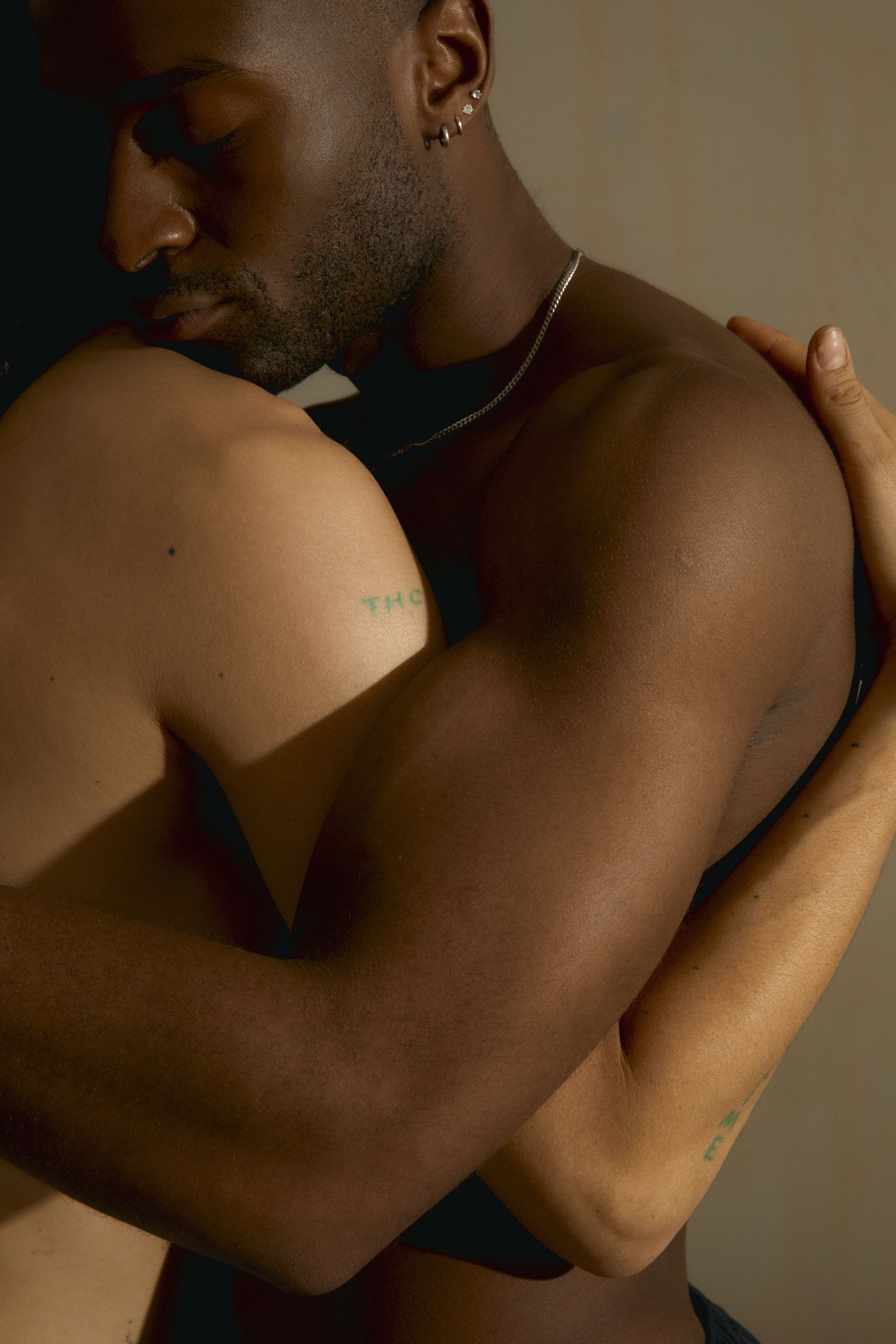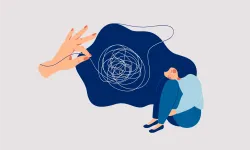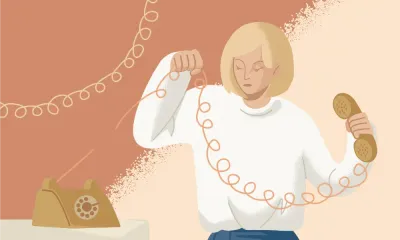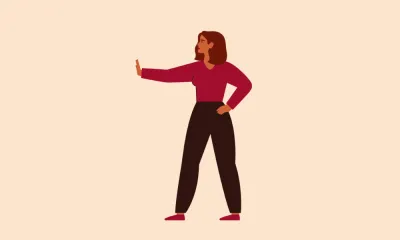What was it you even fought about? It seems so trivial now. Time apart has done you some good and you finally see the situation for what it is - a big mistake.
It dawns on you that all you wanted out of a relationship was within your grasp and you let it slip away. Maybe if you had just talked things through, you wouldn't be staring at the ceiling at 3 am contemplating your life choices.
Let's face it: you're miserable and you want to get your ex back.
Isn't breaking up and getting back together with an ex right up there on the list of things never to do? You've read enough horror stories about emotionally abusive exes and toxic relationship cycles on social media.
The last time you checked, people don't change. Why would your ex be the exception? Wouldn't getting back together with your ex be a form of settling? And what does getting back together with an ex even look like?
Things to know
- After a period of no contact, it's natural to question the breakup and consider the pros and cons of getting back together with your ex. This is when reflecting on the nature of your relationship and understanding the source of your feelings occurs.
- The next stage involves re-establishing communication, but it can be cautious and awkward. You may begin to discuss the issues that led to the break-up and consider if they can be resolved.
- The final stages involve giving the relationship another chance, with open and honest communication being the key to success. You must find a new norm while remaining aware of past issues and work on them.
Keep reading, you're about to find out all there is to know about the stages of getting back together with an ex:
1. The Contemplation Stage
Breakups are excruciating and life-changing events. Along with your new best friends ‘heartache’ and ‘despair’, what-ifs continue to plague you.

You're convinced all those break-up coaches are wrong. Life post-breakup doesn’t feel like a liberating experience filled with 'tons of opportunity' - it’s more like an exercise in self-torture.
You’ve been following all the advice out there. You’re focusing on yourself, trying new things, and even dating other people. But when you're all alone, you hear it - that little voice saying you want your ex back.
You’re not going crazy. You’ve simply entered the contemplation stage.
It’s during this first stage that you start to question the breakup. It's not always the case, but it usually follows after a period of no contact. It could even happen after you’ve both had the chance to see other people for a while - think Ben Affleck and Jennifer Lopez.
Things to think about:
During this stage, it's helpful to consider the following:
The pros of getting back together with your ex
Getting back together with an ex has its pros. You know each other's likes and dislikes. You appreciate each other's strange quirks. You've established a friendship and there's comfort in the familiar. You're not starting from a blank slate so the hassle of finding someone new and getting to know them is eliminated.
The cons of getting back together with your ex
Not starting from a blank slate might seem like an advantage but sometimes, it can actually work against you.
Old issues and past hurts could come to the surface, threatening any efforts to move forward. You also risk getting stuck in a toxic cycle of making up and breaking up.
The nature of your old relationship
Reflect on the nature of your relationship. If there was emotional abuse or physical abuse of any kind, seek professional help to deal with the break-up and move on. Resist the urge to contact your ex-girlfriend or ex-boyfriend. If they're contacting you, continue to ignore them.

Don't let a moment of weakness pull you right back into a toxic relationship.
If the relationship had issues that you now feel could be resolved through open and honest communication, it might not be a bad idea to take the first step and get in contact with your ex.
The source of your feelings
Try to understand your motivation for wanting your ex back. Are you being objective or are you simply caught up in regret and loneliness?
Frustration attraction
If you were dumped, you could be experiencing frustration attraction - a condition coined by biological anthropologist and love guru Helen Fisher. Frustration attraction is an intense, obsessive desire to be with a former partner.
You might be replaying all the good parts of the relationship in your mind, further fueling the desperation to get back together with your ex. You might even be tempted to contact their friends and family members.
If you’re contemplating calling your ex multiple times a day or driving by their new place of work, don’t do it.

Instead, allow yourself time to grieve and gain perspective by making use of the power of silence after a breakup. Experts recommend a no-contact period of anywhere between 30 and 90 days to get over the negative emotions of a breakup.
Anxiety and fear
Moving on after a breakup can be scary. Is the prospect of moving on causing you fear or anxiety? Maybe you've been ghosted a few times or come across a few tinder swindlers.
Perhaps you've been with your partner so long that you can't imagine life without them. Whatever the case may be, make sure it isn't fear or anxiety pushing you to give your ex a second chance.
Guilt
If the relationship ended because you cheated, make sure guilt isn't the only thing motivating you to fix things with your ex. Wanting to get back together with your ex because you view it as a chance to redeem yourself is self-serving and will likely result in another break-up.
2. The Contact Stage

A text message here, a friendly comment there, and soon you're communicating again. Caution is still the theme of every phone call and things are just plain awkward between you.
But at least you're communicating, right?
You're dancing around serious matters and one question lingers in the air whenever you talk.
Where to from here?
The contact stage is… weird.
The truth is, you and your ex are different people now. The nature of your relationship changed the second things ended between you. You probably trust each other a little less now. You might even be a little jaded. Depending on how long it’s been, you might even have different views on, well, everything.
The contact stage is where the trajectory of a relationship is decided. Inevitably, an old relationship will breathe its last breath and a new relationship will breathe its first.
Do you remain friends? Do you reunite as lovers or do you part as enemies once again?
With so much hanging in the balance, it's no wonder this stage is associated with veiled intentions.

Be mindful of the following:
Take things slow during the contact stage. Don't overwhelm each other. Keep your interactions friendly and avoid bringing up past issues - for now.
When you've both warmed up to being on speaking terms again, have an honest conversation about how you're feeling. You're going to have to make your intentions clear for things to progress beyond the contact stage.
Ease into the subject of getting back together and see if your ex is thinking the same thing.
3. The Trial Stage
It's a pretty good sign if you don't kill each other during the contact stage. If your intentions happen to line up, the next stage you’ll find yourselves in is the trial stage. During this stage, you get reacquainted and negotiate the new rules of engagement.
Phone calls probably won't be so weird anymore. Those awkward text messages will become a heart-eyed emoji fest. You might even start making up reasons to see each other.

Eventually, you’ll start going on dates. With all this time together, you’ll start to remember why you fell in love in the first place. You’ll feel those familiar butterflies whenever you look at each other. The attraction will grow until you just can't ignore the urge to take the plunge again.
Watch out for the following:
Although the prospect of getting back together is exciting, slow down. The last thing you want to do is to rush into things. Try to remain level-headed during the trial stage. Your new relationship will thank you for it.
There's a lot to think about during the trial stage. It's not as easy as picking up where you left off. Why did your last relationship end? What things can you both do differently this time?
Take some time to reflect on your past mistakes as a couple. Understand that getting things to work this time is going to take hard work. There might be a point where you're looking for signs your ex is testing you, but it's completely normal.
4. The Turbulence Stage
It's official - you're back together. You’re probably dealing with strange looks from family or serious opposition from friends. Any tension caused by your decision to get back together is only bringing you closer - you're in the honeymoon phase after all.
The critics were wrong. Your ex is trying just as hard as you are to be a better partner and your new relationship hardly feels like you're 'settling'. You're happier than you've been in a while and it feels great to finally have the loving relationship you've always wanted.
But then, something changes. Your ex becomes distant again. The two of you start butting heads over everything and you can't stand to be in the same room anymore. That habit of theirs that you thought was cute becomes a complete turn-off. Every time you catch your ex smiling at something on their phone, a part of you dies all over again.

Those butterflies that made you feel warm and fuzzy are now keeping you up at night and not in a good way. You start to question if you made the right decision and your mental health takes a serious knock.
Now you and that whoopie cushion you sat on last April fool's have something in common - you're both deflated.
Brace yourself, you've hit turbulence.
During the turbulence stage, old problems resurface. Frustration sets in and a relationship takes on a darker tone. The conflict between lovers escalates, resulting in feelings of resentment and regret.
The way a couple deals with the turbulence stage determines two things: whether the relationship ends or if a new and improved relationship dynamic forms.
Consider this:
It might not feel good to rehash old issues, but it's critical that you communicate openly about what things worked and what things didn't work in your old relationship. Try to look at what you can do differently this time around to have a successful relationship.


Instead of falling into old habits, focus on creating new experiences. Whenever issues arise, make the effort to communicate. Avoid familiar patterns of unhealthy conflict resolution.
It's important to be respectful. Try not to use past issues as ammunition. Let go of any unrealistic expectations you have about each other and the relationship. Be patient, remember that change is a slow process - especially where habits and behaviors are involved.
If you're still having a difficult time adjusting, get professional help. Meet with a relationship expert who can help you figure out how to deal with your problems and maintain a healthy relationship.
Another option is couples therapy. With the help of a licensed therapist, you and your partner can find more constructive ways of communicating and resolving conflict.
5. The Norming Stage

You're learning from your mistakes and managing conflict in healthier ways. Your bond is stronger than ever and you're both committed to making the relationship work.
Congratulations, you've reached the norming stage.
It will still take blood, sweat, and tears from both of you to make sure your relationship survives this time around. But hey, you've got the experience of what didn't work the first time to guide you.
Hindsight is twenty-twenty, right?









